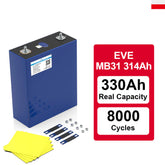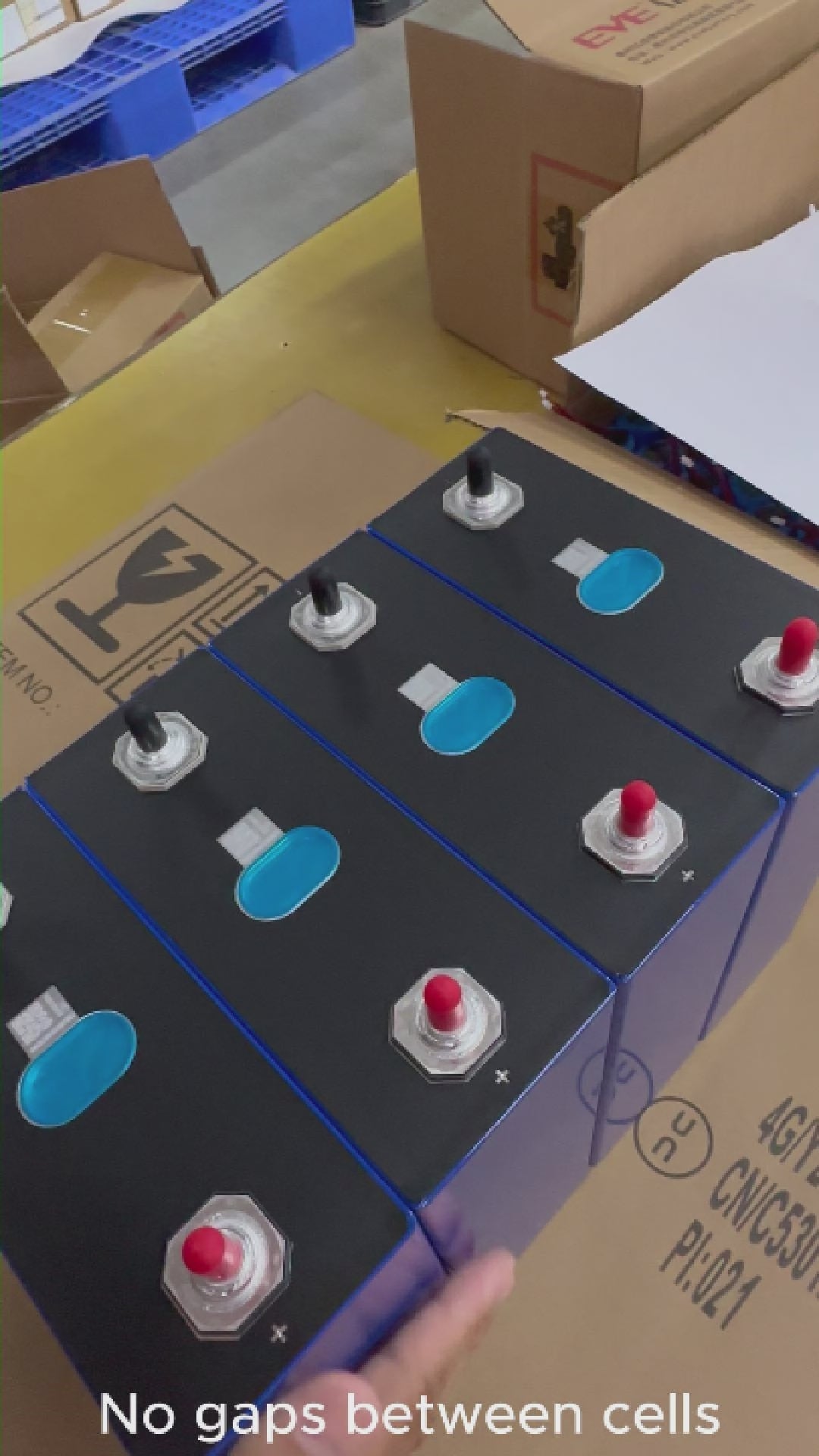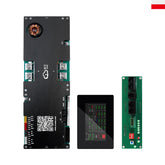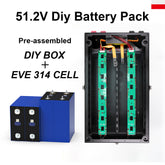Guía completa de baterías de litio para hoverboards Solución integral
Los hoverboards han evolucionado de ser dispositivos novedosos a prácticos dispositivos de transporte personal, y en la base de su rendimiento reside un componente fundamental: las baterías de litio para hoverboards . En esta Guía completa sobre baterías de litio para hoverboards: una solución integral , exploraremos todo lo que necesita saber sobre estas potentes baterías. Ya sea que esté comprando un hoverboard nuevo, reemplazando una batería o simplemente buscando cómo sacarle el máximo provecho a su dispositivo, esta guía le brindará toda la información necesaria.
- Cómo las baterías de litio de tu hoverboard alimentan tu vehículo
- Tipos de baterías de litio para hoverboard
- Cómo elegir la batería de litio para hoverboard adecuada a tus necesidades
- Consejos de mantenimiento para prolongar la vida útil de las baterías de litio del hoverboard
- Problemas comunes y cómo solucionar problemas con las baterías de litio del hoverboard
- Consideraciones de seguridad al utilizar baterías de litio para hoverboards
- Innovaciones en baterías de litio para hoverboards
- Dónde comprar baterías de litio de calidad para hoverboard
Comprender el funcionamiento de las baterías de litio para hoverboards , sus tipos, consejos de mantenimiento y estrategias de solución de problemas puede mejorar significativamente tu experiencia de conducción. Profundicemos en el mundo de las baterías de litio para hoverboards para descubrir todo su potencial.
Cómo las baterías de litio de tu hoverboard alimentan tu vehículo
¿Qué es una batería de litio de un hoverboard?
En esencia, una batería de litio para hoverboard es un paquete de baterías recargable compuesto por múltiples celdas de iones de litio. Estas celdas trabajan juntas para proporcionar la energía necesaria para alimentar los motores, sensores y luces del hoverboard. La tecnología de iones de litio es preferida por su alta densidad energética, diseño ligero y larga vida útil.
¿Por qué litio en lugar de otros tipos de baterías?
Densidad de energía : Las baterías de litio pueden almacenar más energía en un tamaño más pequeño.
Peso : Son más ligeros, lo que hace que el hoverboard sea más fácil de maniobrar.
Longevidad : Las celdas de iones de litio tienen un ciclo de vida más largo en comparación con las alternativas de plomo-ácido.
Seguridad : Los hoverboards modernos incorporan sistemas avanzados de administración de batería (BMS) para monitorear y proteger las baterías de litio del hoverboard contra sobrecarga, sobrecalentamiento y cortocircuito.
Tipos de baterías de litio para hoverboard
Paquetes de baterías estándar de 36 V
Las baterías de litio más comunes para hoverboards incluyen paquetes de 36 V, generalmente compuestos por celdas de iones de litio 18650 dispuestas en configuraciones 10S2P o 10S3P. Estos paquetes ofrecen un equilibrio perfecto entre potencia y autonomía.
Paquetes de 42 V completamente cargados
Cuando están completamente cargadas, estas baterías de 36 V alcanzan los 42 V, lo cual es importante comprender al seleccionar cargadores compatibles o realizar mantenimiento.
Paquetes de baterías personalizados y mejorados
Para quienes buscan un mayor rendimiento, las baterías de litio Hoverboard personalizadas con clasificaciones de amperios-hora más altas o celdas premium (como Samsung o LG) brindan tiempos de viaje más prolongados y mejor durabilidad.
>>Ver también ¿Cuántos vatios tiene una batería de litio de 24 V?
Cómo elegir la batería de litio para hoverboard adecuada a tus necesidades
La compatibilidad importa
Siempre revise las especificaciones de su hoverboard antes de comprar una batería de repuesto. Usar una batería incompatible puede causar problemas de rendimiento o incluso dañar el dispositivo.
Especificaciones clave a tener en cuenta
Voltaje : asegúrese de que el voltaje de la batería coincida con los requisitos de su hoverboard.
Capacidad (Ah) : Mayor capacidad significa tiempos de conducción más prolongados.
Tamaño y ajuste : la batería debe encajar físicamente dentro del compartimiento de la batería de su hoverboard.
Marca y calidad : Las marcas de renombre brindan mayor seguridad y longevidad.
Baterías OEM vs. baterías de posventa
Las baterías de litio de fabricantes de equipos originales (OEM) para hoverboards garantizan compatibilidad y rendimiento, pero las opciones de posventa pueden ofrecer alternativas más económicas. Sin embargo, siempre verifique la calidad y las certificaciones al considerar baterías de terceros.
Consejos de mantenimiento para prolongar la vida útil de las baterías de litio del hoverboard
Prácticas de carga adecuadas
Utilice únicamente el cargador recomendado por el fabricante de su hoverboard.
Evite la sobrecarga desenchufando el cargador una vez que esté completamente cargado.
No utilice cargadores dañados o desgastados.
Condiciones óptimas de almacenamiento
Guarde las baterías de litio de su Hoverboard en un lugar fresco y seco.
Evite las temperaturas extremas, tanto el calor como el frío.
Si va a almacenarlo durante un período prolongado, mantenga la batería con una carga de aproximadamente el 50 %.
Inspección regular
Revise periódicamente la carcasa de la batería para detectar posibles hinchazones o daños.
Controle si hay olores inusuales o calor durante la carga o el funcionamiento.
Reemplace la batería inmediatamente si surge algún problema.
Problemas comunes y cómo solucionar problemas con las baterías de litio del hoverboard
El hoverboard no se enciende
Compruebe el cargador : verifique que su cargador esté funcionando correctamente.
Prueba de voltaje de la batería : use un multímetro para verificar el voltaje de la batería.
Inspeccionar las conexiones : Las conexiones flojas o corroídas pueden impedir el suministro de energía.
Descarga rápida de la batería
Edad de la batería : Las celdas de iones de litio se degradan con el tiempo; es posible que sea necesario reemplazarlas.
Problemas de calibración : realice un ciclo de calibración de la batería si su hoverboard lo admite.
El hoverboard no se carga
Compatibilidad del cargador : asegúrese de estar utilizando el cargador correcto.
Falla del sistema de gestión de la batería : algunos problemas de BMS requieren reparación profesional o reemplazo de la batería.
Consideraciones de seguridad al utilizar baterías de litio para hoverboards
Reconociendo baterías seguras
Busque la certificación UL 2271, que garantiza el cumplimiento de la seguridad de la batería.
Compre baterías de fuentes confiables con reseñas verificadas.
Prácticas de carga segura
Cargue en un área segura contra incendios, lejos de materiales inflamables.
Nunca deje su hoverboard desatendido mientras se está cargando.
Controle si hay signos de calentamiento anormal durante la carga.
Manejo de baterías dañadas
No intente reparar usted mismo una batería de litio de Hoverboard dañada.
Deseche de forma segura las baterías dañadas de acuerdo con las regulaciones locales.
Utilice equipo de protección al manipular paquetes de baterías dañados.
>>Ver también ¿Cuál es el voltaje mínimo para la batería de un carrito de golf? Una guía completa
Innovaciones en baterías de litio para hoverboards
Sistemas mejorados de gestión de baterías
Las baterías de litio de los modernos Hoverboard ahora vienen equipadas con tecnología BMS más inteligente que ofrece:
Protección mejorada contra sobrecarga y descarga.
Monitoreo en tiempo real del estado de la batería.
Gestión térmica mejorada.
Capacidades de carga rápida
Las nuevas soluciones de carga rápida pueden reducir significativamente el tiempo de inactividad, lo que permite a los usuarios volver a la carretera más rápido.
Diseños ecológicos y reciclables
Los fabricantes están diseñando cada vez más baterías de litio para hoverboards teniendo en cuenta la sostenibilidad, incorporando materiales reciclables y fomentando el reciclaje adecuado al final de su vida útil.
Dónde comprar baterías de litio de calidad para hoverboards
Distribuidores autorizados
Al comprar a distribuidores autorizados se garantiza que recibirá baterías de litio para Hoverboard genuinas con garantía y soporte del fabricante.
Mercados en línea
Si bien los mercados en línea ofrecen precios competitivos, tenga cuidado:
Verificar calificaciones y reseñas del vendedor.
Confirme las certificaciones de la batería y el cumplimiento de las medidas de seguridad.
Tenga cuidado con los precios inusualmente bajos, que pueden indicar productos falsificados.
Talleres de reparación locales
Algunas tiendas locales de reparación de productos electrónicos o de movilidad tienen baterías de litio para hoverboard de alta calidad y pueden brindar servicios de instalación profesionales.
En esta Guía completa sobre baterías de litio para hoverboards: una solución integral , hemos explorado los aspectos esenciales para comprender, mantener y solucionar problemas de las baterías de litio para hoverboards . Estas baterías son el elemento vital de tu hoverboard, y un cuidado adecuado puede mejorar significativamente tanto su rendimiento como su seguridad.
Recuerda elegir baterías de alta calidad, seguir las prácticas de mantenimiento recomendadas y mantenerte informado sobre las últimas innovaciones. Tanto si eres un usuario nuevo como un aficionado experimentado, cuidar las baterías de litio de tu hoverboard te garantizará muchos viajes tranquilos y seguros.
Al finalizar esta guía, vale la pena enfatizar una vez más: las baterías de litio de los hoverboards merecen su atención y respeto. Siguiendo los consejos que compartimos aquí, estará bien equipado para maximizar su experiencia de hoverboard, garantizando al mismo tiempo la durabilidad y seguridad de su sistema de batería.
























Leave a comment
All blog comments are checked prior to publishing